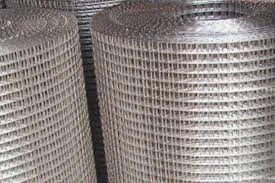nov . 08, 2024 00:35 Back to list
Understanding the Differences Between Barbed Wire and Razor Wire for Security Needs
The Intriguing World of Barbed Wire and Razor Wire An Overview
Barbed wire and razor wire have long been symbols of security and containment, often associated with prisons, military installations, and high-security facilities. They serve as physical barriers that deter intruders and control access to sensitive areas. While both types of wire have distinct designs and applications, they share a common purpose to protect perimeters and safeguard valuable assets.
Barbed Wire A Historical Perspective
Barbed wire was invented in the late 19th century and became a revolutionary solution for fencing, especially for cattle ranchers in the American West. Its introduction allowed farmers and ranchers to effectively manage livestock and secure their land against trespassers. The wire consists of sharp spikes or barbs at regular intervals, which prevent animals from breaking through and intruders from easily scaling the fence.
The impact of barbed wire extended beyond agricultural use. It played a notable role during military conflicts, particularly in World War I, where it became instrumental in trench warfare. Soldiers used barbed wire to create defensive perimeters, greatly hindering enemy movement and access. Despite its initial benevolence as a farming tool, the association of barbed wire with imprisonment and confinement grew over time, leading to its portrayal in human rights discussions.
Razor Wire A Modern Security Solution
Razor wire, a more advanced variant of barbed wire, emerged as a solution for heightened security needs. It features sharp blades or spikes that are not just barbed but designed to inflict maximum injury upon contact. This makes razor wire an effective deterrent, discouraging unauthorized access to sensitive areas such as military bases, correctional facilities, and high-security sites.
barbed wire and razor wire

Razor wire is often installed in coiled configurations, which add to its intimidating appearance. Its design allows for easy installation atop walls and fences, creating an imposing barrier that is exceedingly difficult to traverse. Due to its severe nature, the use of razor wire is typically regulated, ensuring it is deployed in appropriate contexts and not in ways that could unjustly harm individuals.
Safety and Ethical Considerations
While both barbed wire and razor wire serve critical security functions, their use raises significant ethical questions. Human rights advocates often voice concerns about the potential for injury or death associated with these materials, particularly in detention centers or border enforcement scenarios. The debate surrounding the use of such security measures calls for a balance between safety and human dignity, prompting discussions about alternative fencing technologies that can offer security without excessive harm.
Moreover, the psychological impact of these barriers cannot be understated. The presence of barbed and razor wire often evokes a sense of fear and oppression. For communities near prisons or military installations, these wire fences serve as constant reminders of confinement and separation, influencing the social landscape and community relations.
Conclusion
Barbed wire and razor wire remain pivotal in the discussion of security, control, and human rights. As society grapples with issues related to safety, privacy, and dignity, the roles of these barriers will undoubtedly continue to evolve. Innovations in security technology may provide alternatives that address the need for safety without compromising ethical standards. In the meantime, understanding the historical context and implications of these materials is essential as we navigate the complex interplay of security, society, and individual rights.
-
The Role of Field Wire Fence in Grassland Conservation
NewsJul.15,2025
-
Stainless Steel Razor Wire Durability in Coastal Environments
NewsJul.15,2025
-
Enhancing Home Security with Mesh Fences
NewsJul.15,2025
-
Diamond Mesh Wire for Small Animal Enclosures
NewsJul.15,2025
-
Common Wire Nail Tensile Strength Testing for Woodworking
NewsJul.15,2025
-
Barbed Wire Corrosion Resistance Galvanization Techniques
NewsJul.15,2025









